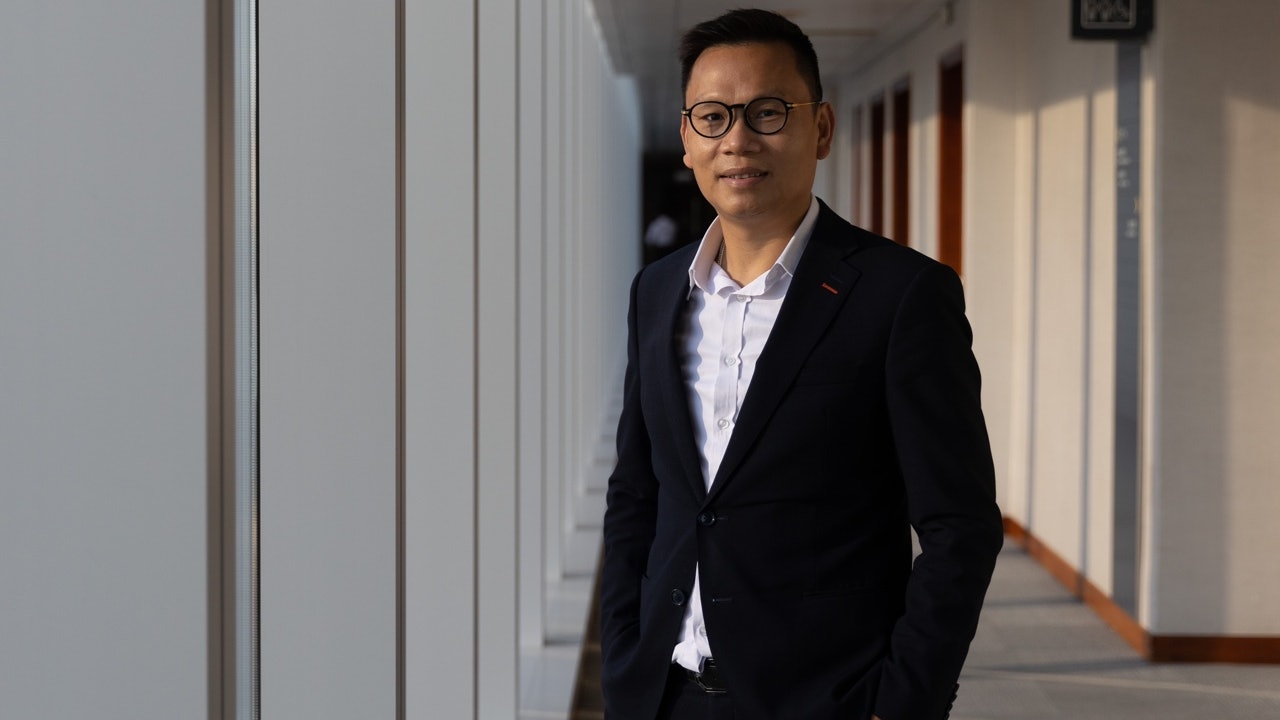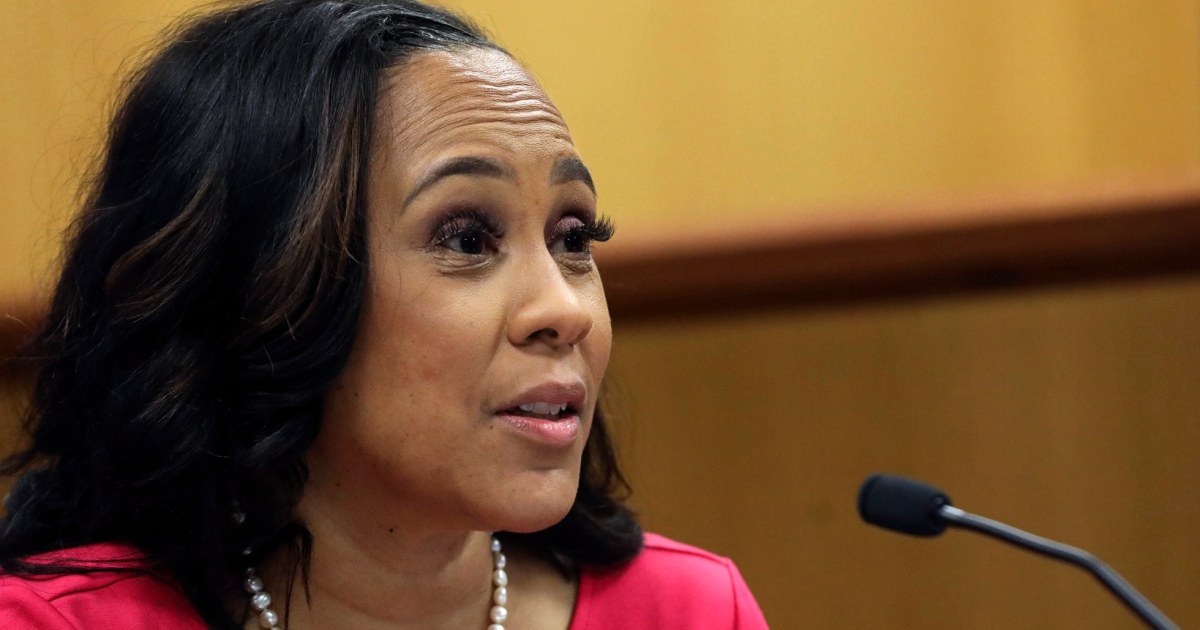The new "Policy Address" proposes to reorganize the Home Affairs Bureau as the "Youth and District Affairs Bureau" to strengthen the district-based solution to regional problems and to provide a one-stop platform for youth development.
Outsiders are concerned about how district affairs can be re-coordinated after the resignation and oaths of members of the district councils?
In an interview, Chen Hengpin, a member of the DAB Legislative Council, said that the current government has a lot of political power in district governance. It is recommended to abolish the district management committee and set up a district administrative committee. The current 18 districts are changed to 10 districts, and each district has 1 commissioner. And 3 deputy commissioners are responsible for solving the work of regional facilities and environment, contacting regional teams and promoting youth development.
As for the 18 district councils, Chen Hengbin believes that it has its role to be retained, but he also suggested that it be rezoned to 10 districts, with 10 seats in each district, with elected and appointed members each accounting for half.
In terms of youth development, Chen Hengbin believes that the current youth policy is "spread to one place," and advocates that a dedicated department should coordinate youth work, and each district will deal with it according to the situation, and set up full-time youth workers to discover young leaders and promote youth development.
He emphasized that related work should not talk about politics, and that youth should be blocked from anti-government forces.
Chen Hengpin believes that the current civil affairs commissioner's role is passive, and the government has a lot of efforts in regional governance, and the implementation of administrative orders is unsatisfactory.
(Photo by Liao Yanxiong)
Advocate the establishment of a demarcation follow-up committee for the district administrative committee
At present, there are district management committees in all 18 districts, which are mainly in charge of district affairs commissioners, who handle district affairs and coordinate the activities of various government departments in the management of district affairs.
Chen Hengpin believes that the current civil affairs commissioner's role is passive, and the government has a lot of efforts in regional governance, and the implementation of administrative orders is unsatisfactory.
He suggested abolishing the existing district management committees (regional councils), adding a district administrative committee, and rezoning from the previous 18 districts to 10 districts, just like the district division in the general election of the Legislative Council. In addition, each district has 1 commissioner and 3 A deputy commissioner.
As for the ranks of commissioners and deputy commissioners, Chen Hengbin suggested that the commissioners should be at the directorate level 6 (D6) of the department, which can be appointed or served by civil servants; the deputy commissioners should be at the directorate level 3 (D3), which can be held by civil servants.
He said that the three deputy commissioners can each be responsible for one area, namely dealing with regional facilities, environmental and sanitation issues, connecting with groups in the district, collecting sentiments and opinions from the district, and promoting youth work.
Chen Hengpin suggested that 50 area committees should be set up in Hong Kong, each with about 150,000 people, mainly to deal with district governance and increase the participation of residents.
(Photo by Liao Yanxiong)
Advocate the establishment of 50 district committees to deal with district governance and increase residents' participation
For example, Chen Hengpin said that the Wing Fong Street Market in Kwai Fong is currently "unmanned" and the nearby Kwai Fong Community Hall has only one floor of waste. However, since the Community Hall and the Market are respectively responsible for the Civil Affairs Department and the Food and Environmental Protection Department, it is difficult to integrate and deal with it. .
He suggested that different departments can be integrated to carry out different projects such as market redevelopment. "In the past, there was no organization to reorganize and do not do it. After the reorganization, there will be facilities to be built in the area in the future, and facilities to be improved if there are facilities. In fact, a commissioner is enough. It will be much faster if you do consultation and basic planning at the regional level, and then go up to the Legislative Council to pick up money (to withdraw funds)."
He expects that the district fire protection committees, fight crime committees, area committees and youth activities committees will become important advisory structures in the future, and the functions of the relevant committees should be enhanced.
He also suggested that 50 area committees should be set up in Hong Kong, with about 150,000 people in a district, with secretariat support in each district, mainly dealing with district governance and increasing the participation of residents.
Chen Hengpin believes that the district boards should be retained, but suggested that the 18 district boards be divided into 10 districts, each with 10 seats, and half of the appointed and elected members will be allocated.
(Profile picture)
Refers to the district councils still functioning and should be retained
As for whether the district councils after the resignation of members and their oaths should be retained, Chen Hengbin believes that the district councils still have their functions and should be preserved. However, it is suggested that the 18 district councils should be divided into 10 districts, with 10 seats in each district, among which are elected members and of course. The number of committee members is half the number of appointed and elected members. He emphasized that the establishment of appointed members can allow people of different levels and knowledgeable people to give their opinions.
When asked about the difference between zone committees and district councils, Chen Hengbin said that the functions of the two are different. Among them, the zone committees mainly liaise with local organizations, conduct private consultations, and collect public opinion.
He emphasized that the division into 50 districts can handle the situation in each district more carefully. As for the district councils, he believes that the main task is to actually carry out district affairs, such as handling funding and other tasks.
Chen Hengpin believes that the government should set up a dedicated department to coordinate and formulate work that is feasible and truly engages with youth.
Said that the current youth policy is "spread to the same place"
In the new "Policy Address", the government stated that it must walk with young people, establish effective channels to listen to the voices of young people, and at the same time allow them to establish positive values.
Chen Hengpin said bluntly that the current youth policy "is scattered all over the place" and the government should not "blindly engage in activities," but must strategically promote youth work.
Regarding the "Youth Committee Self-Recommendation Program" launched by the government, Chen Heng-pin said, "There is a separate program. I hope to talk to young people. This is relatively simple." He also pointed out that the Youth Commission organizes exchanges every year. Activities such as delegations are only held by non-profit organizations. The government lacks in-depth follow-up and exchanges. Therefore, he believes that a dedicated department should be responsible for coordinating and formulating work that is feasible and truly engages with youth.
Promoting youth work should not talk about politics and obstruct anti-government forces
Chen Hengpin advocated that the overall central department should coordinate youth work, and each district would deal with it according to the situation, and the deputy commissioner of each district would be responsible.
He also pointed out that there should be full-time youth workers who are responsible for discovering young leaders and promoting youth development. "Use young people’s language to guide young people, guide young people’s development, and provide opportunities for them to play." He suggested that young leaders and scholars And experts and other people who are interested in investing in youth development take up relevant work.
However, he emphasized that the promotion of youth development should not be talked about politics, and that youth should be separated from anti-government forces. "If anti-government forces infiltrate young people, there will be endless troubles." He believes that the experience of 2019 should be learned from the anti-China forces. The forces can't use the youth to do what they want to do and harm young people."
Chen Hengpin believes that we can refer to the model of Singapore's "People's Association" to provide a diversified platform for young people. The goal is to move towards positive energy, cultivate their homeland feelings, and establish mutual trust with the government.
District Council reorganization?
Lam Cheng: After the 2019 district election issue is sworn, it will deal with functional operation problems. DQ | Xu Yingwei: DQ principle "speaks many times". There is no plan to reorganize the district council political circle. Organizational system: abolish half of martial arts
01News









